“You seemed to like me when I wore a peasant’s garb. Is it my uniform that makes a difference?”
|
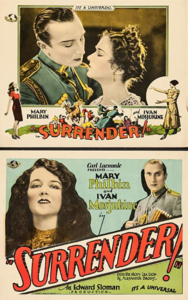
Synopsis:
The daughter (Mary Philbin) of a rabbi (Nigel De Brulier) is torn between her attraction to a Russian Cossack (Ivan Mozzhukhin) and her revulsion towards him once he invades her village.
|
|
Genres, Themes, Actors, and Directors:
- Jews
- Play Adaptation
- Silent Films
Review:
Based on a 1915 Hungarian play by Alexander Brody, this obscure movie by silent film director Edward Sloman remains one of the few early Hollywood portrayals of European Jewish village life, and as such will be of minor interest to film fanatics; unfortunately, however, the storyline itself leaves much to be desired. It tells the tragic tale of an arrogant but handsome Cossack (Mozzhukhin) who meets a beautiful Jewish girl (Philbin) in a meadow one day, flirts with her, and quarrels with her protective father (De Brulier). Upon leading an invasion of Philbin’s village, Mozzhukhin spies De Brulier (who has hidden Philbin in the sacred cabinet where his Torah is kept) and the two quickly enter into a battle of wills. When Mozzhukhin asserts that Philbin’s affections will be the price for not only the life of her fiancee (Otto Matieson) but her entire village, we wonder what kind of choice she will make — but the denouement eventually devolves into a completely unrealistic situation between Mozzhukhin and Philbin, and the film’s coda is even less convincingly handled. Nonetheless, this one does remain worth a look simply for its fascinating glimpse at life for early-20th-century European Jews.
Redeeming Qualities and Moments:
- An interesting and respectful look at traditional Jewish village life
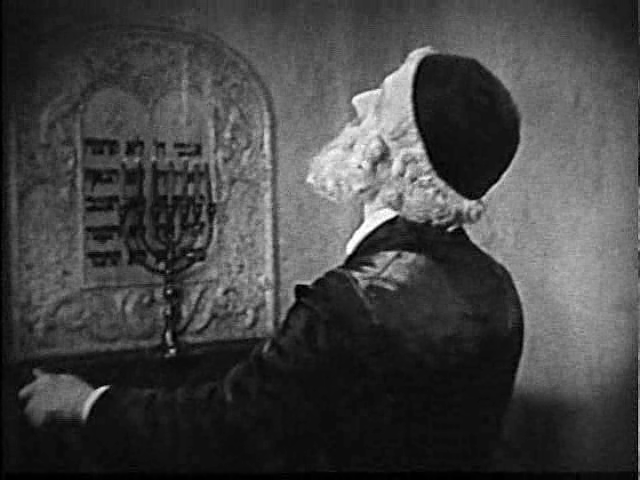
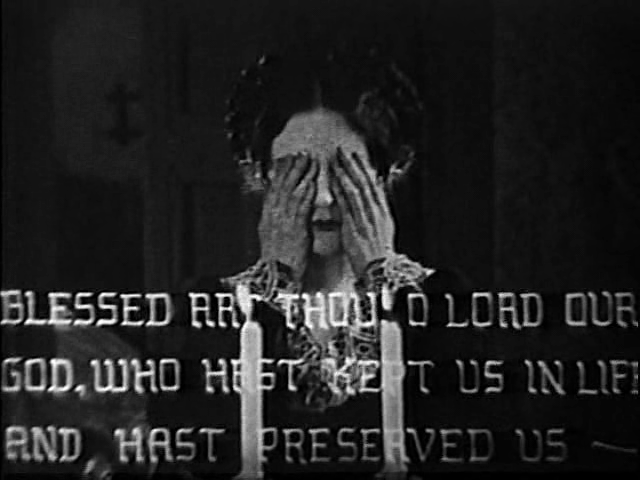
- Fine cinematography
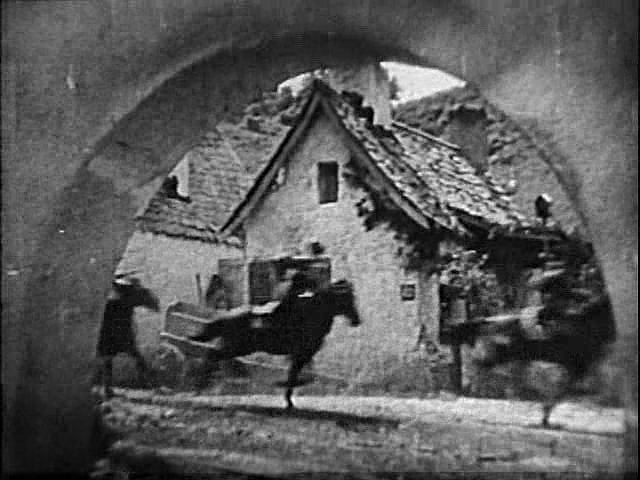
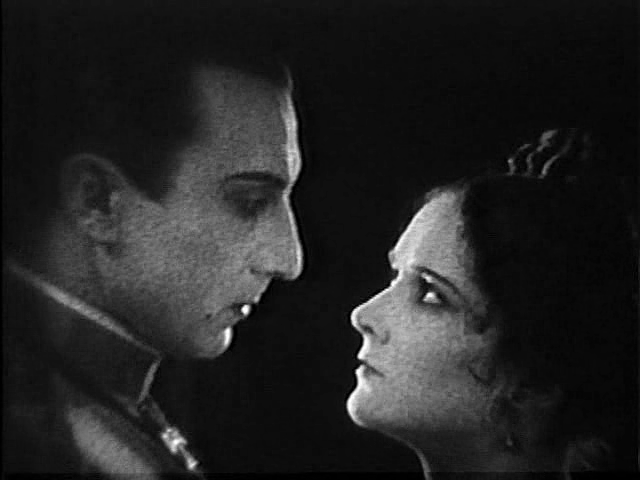
Must See?
No, though it’s worth a look if you’re curious. Listed as a Sleeper in the back of Peary’s book.
Links:
|
One thought on “Surrender (1927)”
First viewing. Not must-see (and certainly not a sleeper), though it is recommended to a degree – for its historical significance. (Good luck trying to find it.)
In agreement with the assessment above. The subject matter is unexpected and rather welcome for a film of the period – but (its attention to cultural detail notwithstanding) one gets the sense that the film’s main thrust is still as ‘entertainment’ (i.e., the love angle). Nevertheless, it’s the kind of film that could easily inspire viewers to become more interested in exploring the events that inspired the film.
Side note: Mozzhukhin somewhat resembles and comes off like Bela Lugosi; Matieson bears a resemblance to and has the spirit of Eli Wallach.